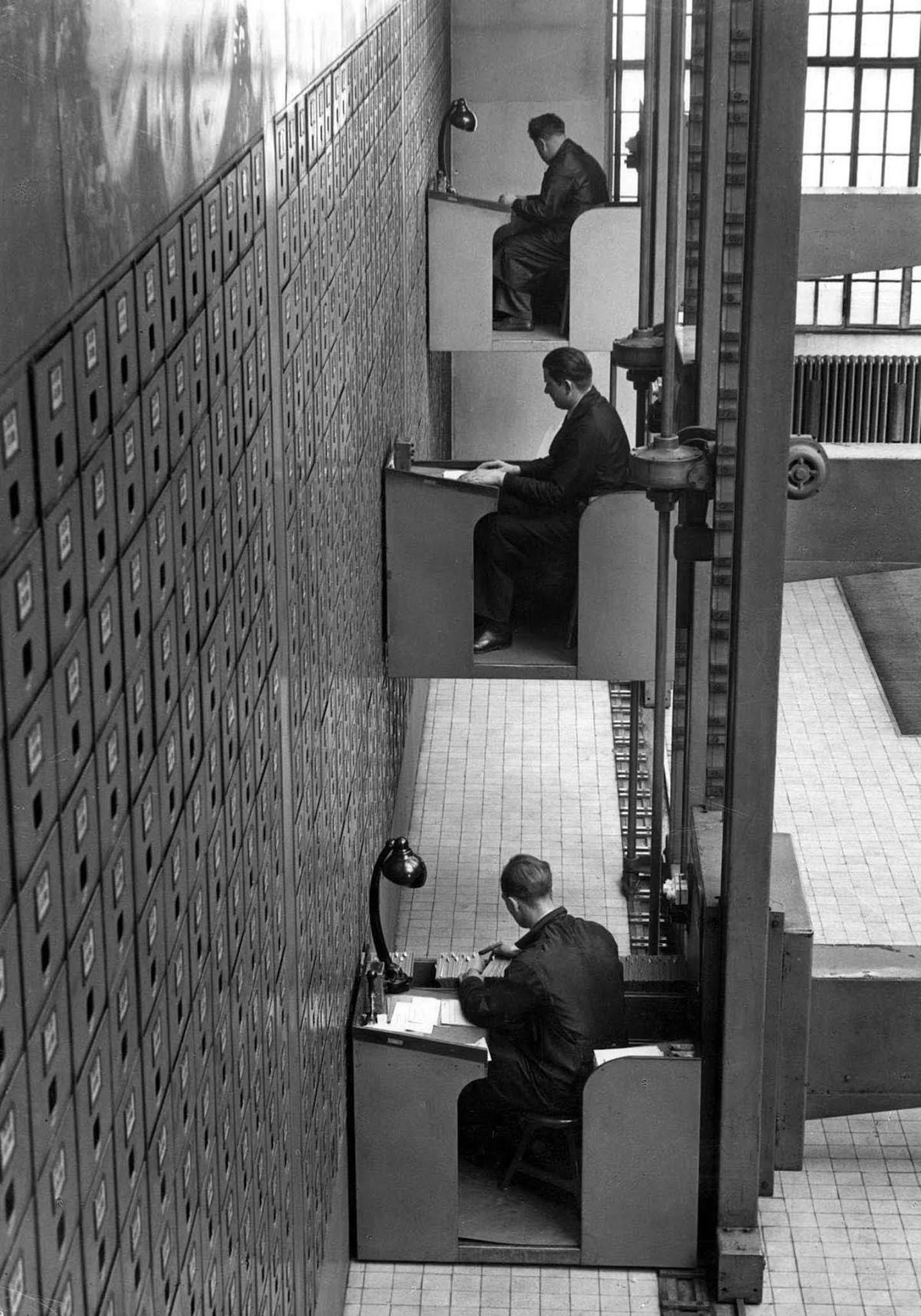this post was submitted on 17 Oct 2024
702 points (99.9% liked)
HistoryPorn
5223 readers
464 users here now
If you would like to become a mod in this community, kindly PM the mod.
Relive the Past in Jaw-Dropping Detail!
HistoryPorn is for photographs (or, if it can be found, film) of the past, recent or distant! Give us a little snapshot of history!
Rules
- Be respectful and inclusive.
- No harassment, hate speech, or trolling.
- Engage in constructive discussions.
- Share relevant content.
- Follow guidelines and moderators' instructions.
- Use appropriate language and tone.
- Report violations.
- Foster a continuous learning environment.
- No genocide or atrocity denialism.
Pictures of old artifacts and museum pieces should go to History Artifacts
Illustrations and paintings should go to History Drawings
Related Communities:
founded 2 years ago
MODERATORS
you are viewing a single comment's thread
view the rest of the comments
view the rest of the comments

So do authorized notaries and paper trails for physical documents. Everyone who had a wallet hacked that lost NFTs or currencies can tell you that crypto cant protect your assets.
Cryptocurrencies have absolutely nothing to do with cryptography, they just appropriated the name.
Uhm Actually 🤓 crypto is called crypto, because it is based on cryptograhy
It's called cryptocurrency because Bitcoin used sha256 as it's proof of work algorithm for funsies, but has no actual tie to cryptography. Proof of work is not cryptography.
But you're kinda right with the proof-of-work. But I would consider sha256 as cryptography
That's like saying that you're a English lord because you watched a TV show involving the middle ages one time. Just because a concept contains, as one option amongst many, a thing, doesn't make that concept the thing.
The proof of work could be anything- sha256 was just something that happened to be picked. That doesn't make it cryptography any more than you could call RCS cryptochat.
I hate to be that guy, but Bitcoin uses elliptic curve cryptography to sign transactions, and SHA256 is definitely in the field of cryptography. While cryptocurrency isn't purely cryptography, it is cryptography plus economics. Borrowing the "crypto" prefix, at least in my opinion, is reasonable.
It's not borrowing, it's attempting to entirely hijack and replace the prefix. This is already causing a massive loss in trust of the entire field of cryptography.
As I said in another reply, just because it uses sha256 as it's proof of work doesn't make it crypto, as it was essentially picked out of a hat.
And for the signing of transactions, are we going to start calling bank checks crypto? RCS being renamed crypto? Just because something tangentially has some sort of cryptographic signature tied into it does not make that object cryptography or related to cryptography- it just means that it has a signature enveloping that object.
Hmm. You got a point
Regardless of whether it's eroding trust in cryptography today, I still assert it was a reasonable choice when the term was coined. Cryptocurrency depends fundamentally on cryptography.
You could probably switch proof-of-work to use some non-cryptographic primitive with similar properties (maybe protein folding?) and it would still serve the same purpose, ignoring the economic problems. I will concede that point.
Bitcoin still cannot function without cryptography. Each UTXO is bound to a particular key pair. Each block refers to its parent using a hash. If either of those were switched to a non-cryptographic primitive, there would be no way to authenticate the owner of a UTXO, nor would there be a way to prove the ordering of blocks. Removing cryptography from cryptocurrency would make it entirely useless as a currency.
Banks existed for a thousand years without the existence of cryptography. If you removed cryptography from RCS, you'd still have the rest of the standard for messaging.
But you wouldn't be able to authenticate the bank transfers- or messages- as real. It's the exactly same situation the so-called cryptocurrencies run in to, and why all three have added signatures onto it. That doesn't make any of the three cryptography- just something that exists better with the support of cryptography.
A cryptocurrency can exist without the signature- it's less useful, but 'just trust me bro' is basically THE underpinning for first currencies since the beginning, and the source of a lot of the problems with them.
A cryptocurrency without crypto is just a currency then?
Nonsense argument. It is much easier to forge or steal a paper copy of a document that it is to do so with an equally well protected digital copy.
Vast majority of digital theft is done via social engineering and not through some exploit in the underlying technology.
If the local county records get broken into and every property deed gets stolen, the theif doesn't have ownership of every property in the county. Anything that represents physical ownership of an item is way more secure with a physical paper trial than a digital one. I understand that cryptocurrencies are different than cryptography, but a physical copy of a record i own and an official copy that a relevant party owns, such as a local government, hospital, or bank will always be more secure than digital tokens of ownership.
That's just demonstrably false. Lots of historical precedent for people losing property, access, etc due to lost or incorrectly filed documents, clerical errors, corruption and a billion other ways. None of this really affects digital assets.
Tell me you have no idea about cryptography without telling me
Yeah, obviously it's the user's fault for not holding crypto correctly. This is why my crypto is stored on a floppy disk that can only be read by my 8086 computer with no Internet connectivity. If you loose money it's always your fault for not being prepared.
There is a difference between cryptography and cryptocurrency...